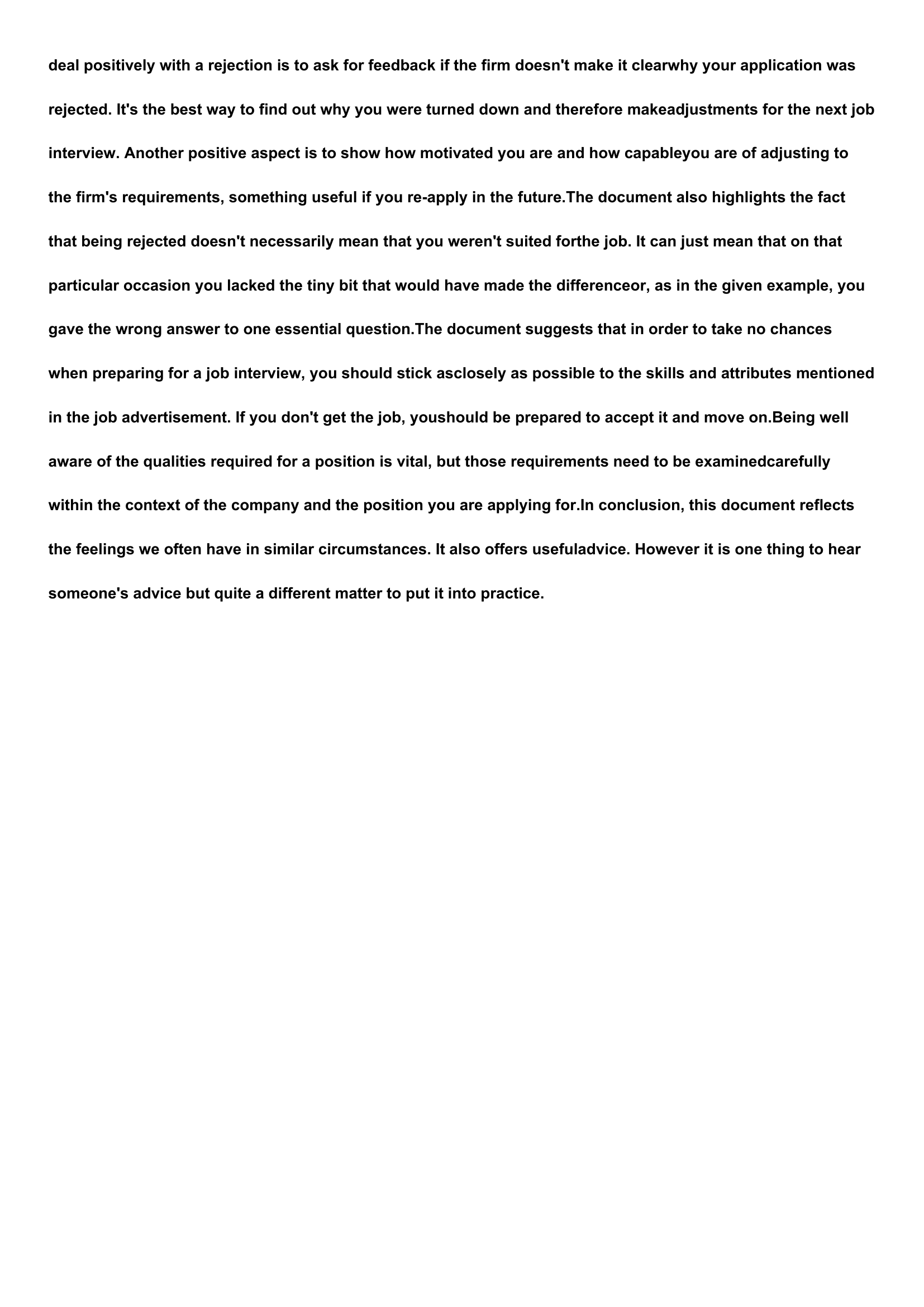devoir d'anglais
Publié le 15/02/2016

Extrait du document
«
deal positively with a rejection is to ask for feedback if the firm doesn't make it clearwhy your application was
rejected.
It's the best way to find out why you were turned down and therefore makeadjustments for the next job
interview.
Another positive aspect is to show how motivated you are and how capableyou are of adjusting to
the firm's requirements, something useful if you re-apply in the future.The document also highlights the fact
that being rejected doesn't necessarily mean that you weren't suited forthe job.
It can just mean that on that
particular occasion you lacked the tiny bit that would have made the differenceor, as in the given example, you
gave the wrong answer to one essential question.The document suggests that in order to take no chances
when preparing for a job interview, you should stick asclosely as possible to the skills and attributes mentioned
in the job advertisement.
If you don't get the job, youshould be prepared to accept it and move on.Being well
aware of the qualities required for a position is vital, but those requirements need to be examinedcarefully
within the context of the company and the position you are applying for.In conclusion, this document reflects
the feelings we often have in similar circumstances.
It also offers usefuladvice.
However it is one thing to hear
someone's advice but quite a different matter to put it into practice..
»
↓↓↓ APERÇU DU DOCUMENT ↓↓↓
Liens utiles
- Georges Washington devoir d'euro-histoire anglais
- Devoir d'anglais correction
- Anglais devoir 01
- devoir 2 anglais bts tourisme
- devoir 01 anglais bas tourisme


